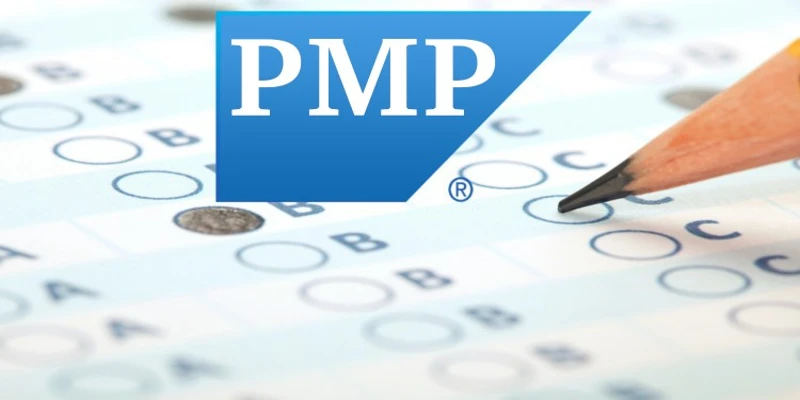Passing the PMP exam is a big achievement for project managers. It shows you’re an expert in your field and have the knowledge and skills to succeed. However getting certified can be confusing, especially when understanding how PMP exam is scored. The scoring process is complex because of many factors. In this article, we’ll break it down in simple terms, so you can understand how the PMP exam is scored, what affects your results, and what to expect.
How PMP Exam Is Scored?
Although PMI doesn’t reveal the exact passing score or pass rate for the PMP exam. Instead, they use a thorough analysis to compare your skills and knowledge to the standards of the project management field.
The number of correct answers needed to pass varies, as each exam is unique. The difficulty level and content of each question don’t affect its weight on your final score. This means you’ll get one of many different versions of the exam. Also, your score will be evaluated based on how well you did compared to your peers.
Your exam results will be reported in performance rating categories, rather than a numerical score. This means you’ll see how you did compared to others, rather than a specific percentage or score. before taking the exam in UAE, you should take the best Pmp training in abu Dhabi.
PMP Exam Format and Structure
 The PMP exam has 180 questions and a time limit of 230 minutes. The questions will be about project management and will include different types, such as multiple-choice and fill-in-the-blank. If you take the paper test, you can take breaks whenever you want, but it will use up some of your test time. If you take the test on a computer, you’ll get two short breaks.
The PMP exam has 180 questions and a time limit of 230 minutes. The questions will be about project management and will include different types, such as multiple-choice and fill-in-the-blank. If you take the paper test, you can take breaks whenever you want, but it will use up some of your test time. If you take the test on a computer, you’ll get two short breaks.
When you finish the computer test, you’ll get your results right away. If you take the paper test, you’ll have to wait 6-8 weeks to see how you did. The computer test also includes a short tutorial and survey that won’t count towards your test time.
PMP Test Report
The PMP exam focuses on three main areas People (42%), Process (50%), and Business Environment (8%). These areas match the PMI Talent Triangle, which includes technical skills, leadership skills, and business management skills.
Within these areas, you’ll be tested on project management tasks and enablers. Enablers are high-level skills that project managers need to have to be certified. You’ll be tested on 35 tasks across the three areas, each with enablers to help describe the task.
The process area makes up most of the test, but all three areas include predictive project management processes from the PMBOK Guide. Starting in 2021, PMI also requires knowledge of agile and hybrid methodologies. The exam will cover both predictive and agile approaches equally.
PMP Exam Score Rating
PMI explains that each question is worth one point, and your final score is the total of all points earned. This score puts you in one of four categories
- Above Target
- Target
- Below Target
- Needs Improvement.
Your PMP exam score report will show two main things, whether you passed or failed. It also shows how you did in three domains Process, People, and Business Environment. Within each domain, you’ll see how you did in individual tasks. To pass, aim to score at or above the target in most domains.
How Much Do You Need To Pass The Score?
To pass the PMP exam, you should aim high on your practice tests. Your target should be over 70%. The exam got a big update in 2021, adding Agile and Adaptive project management, and people are finding it tough. So, you must prepare yourself for the PMP exam or enroll in a course in Monroyal to pass the test.
Also, some questions on the exam don’t count towards your score, but you won’t know which ones. So, try to answer all 180 questions to the best of your ability. Aim to get at least 126 right.
Myths About How PMP Exam Is Scored?
There are some misconceptions regarding the PMP exam among the people. Let’s clear up some of the myths.
Myth #1: The PMP exam is based solely on the PMBOK Guide.
Reality: The exam is based on the PMP Exam Content Outline. Make sure to review it before preparing.
Myth #2: Some questions are worth more points than others.
Reality: Each question is worth one point. Difficulty level doesn’t affect scoring.
Myth #3: Scoring below the target in one domain means automatic failure.
Reality: PMI evaluates overall performance across all domains. Scoring poorly reduces your chances, but it’s not an automatic fail.
Myth #4: The pass rate is the same for every applicant.
Reality: The exam evaluates performance relative to others, and questions may vary. Pass rates may differ.
Summary
The PMP passing score is a secret only the PMI knows. What matters is that the passing score varies depending on the questions you get during the exam. We recommend aiming high over 70% in your PMP practice exams. If you can hit that mark, you’ll likely see a congratulatory message and pass the exam. We hope you’ve got your answer regarding how PMP exam is scored.

